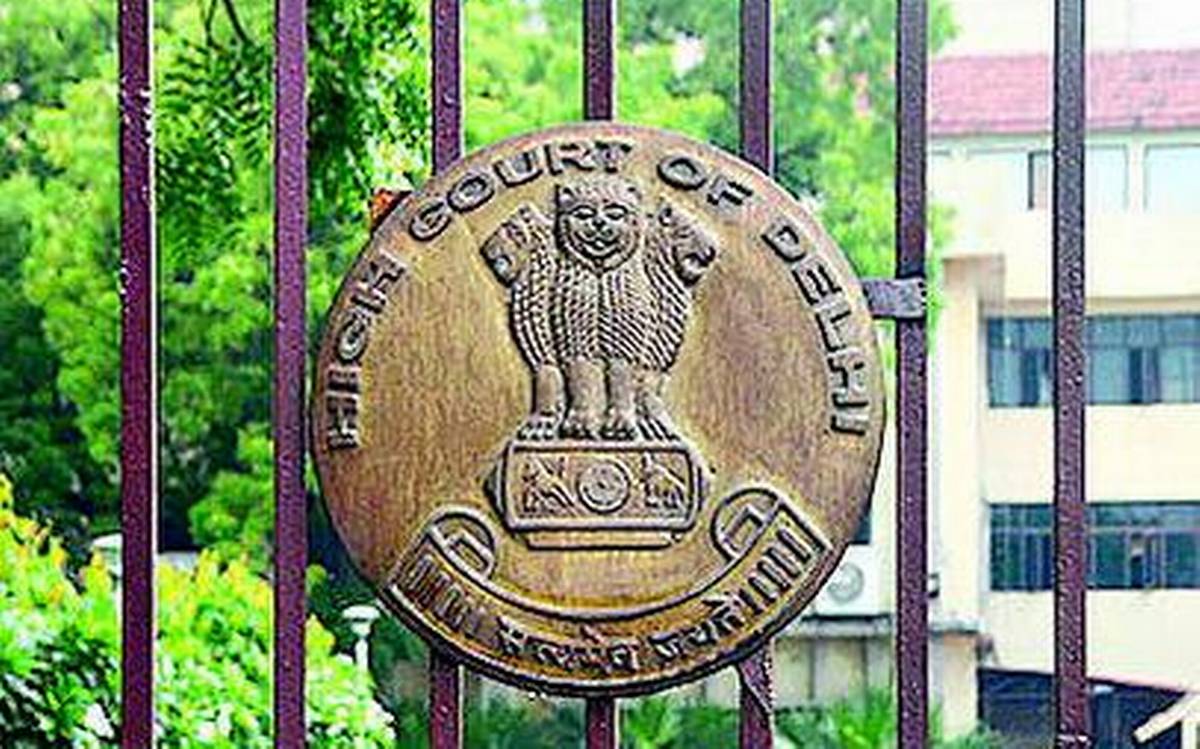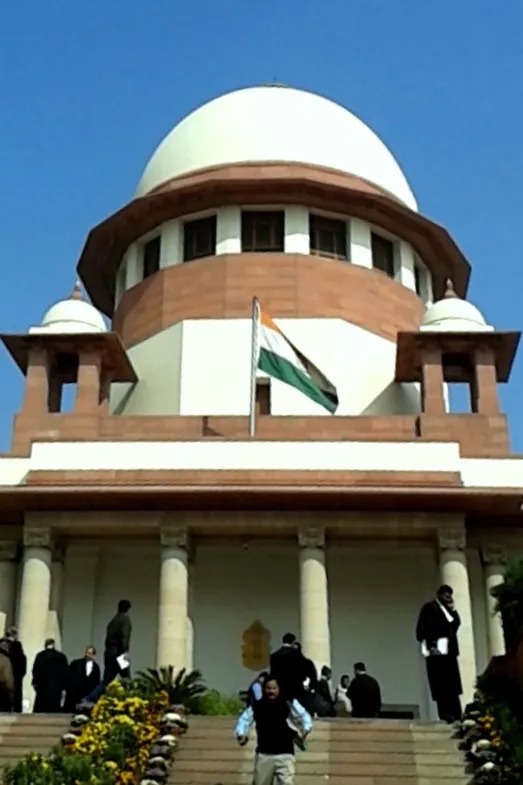Jitendra Nath Chaudhuri, J.@mdashThis application has been assigned to this Bench by the learned Acting Chief Justice by his order dt. 3-3-86.
2. This is an interlocutory application filed on 15-2-86 of the petitioner, Sri Govind Ram Agarwal, signed by his son Suresh Kumar Agarwal, who has also affirmed the affidavit to the said petition on 15th Feb. 1986. The Habeas Corpus application under Article 226 of the Constitution, in which the present interlocutory application has been filed, is still pending before another learned Division Bench, The petitioner is a detenu under the Conservation of Foreign Exchange and Prevention of Smuggling Activities Act, 1974 Act. No. 52 of 1974, the order of detention being dt. 8th Nov. 1985.
3. Mr. Bholanath Sen, learned Counsel for the petitioner, initially submitted that in this application he does not pray for any temporary release on parole of the petitioner. In his submission, since according to the Jail Authority the petitioner has to be operated upon for bleeding piles and the same cannot be done in the Jail hospital, the petitioner should be allowed to be operated upon at his own expense either at the Woodlands Nursing Home or the Belle Vue Clinic, Calcutta. He further submitted that the petitioner had no confidence in the hospitals in Calcutta, including the Government Hospitals. He drew the attention of the Court to a report appearing in the newspaper "Telegraph" dt. 3rd Dec, 1985 of a Staff Reporter wherein it is alleged that the Water at the SSKM Hospital, Calcutta was "impure".
4. Mr. Sen relied upon the decisions reported in
5. In the case reported in
6. On the day on which the order on this application was due to be made, Mr. Bholanath Sen prayed that the matter be reopened for further arguments since he wished to rely upon an order of the Hon''ble Supreme Court, which was not available to him earlier. Mr. Jatin Ghosh did not object to this prayer and accordingly, this application was fixed for further arguments on the 13th Mar., 1986. On that day, for the first time Mr. Sen submitted that the petitioner should be released on Parole. Till then, Mr. Sen had specifically stated, and repeatedly stated that he did not want any release on Parole and his entire submission had proceeded on that basis. On 13-3-1986 Mr. Sen filed a xerox copy of the certified copy of an order dt. 21-2-86 passed by the Hon''ble Supreme Court on petitions for special leave under Article 136 of the Constitution Crl. Appellate Jurisdiction) Appeal (Crls) Nos. 226 of 1986 Munnalal Prabhudas Shanna v. Union of India and 216 of 1986 Sm. Majulaben Amrutlal Soni v. Union of India from the judgment and order of the Delhi High Court dated 11th Oct., 1985 passed in Crl. Writ Petition Nos. 221 and 222 of 1985. The order of the Hon''ble Supreme Court relied on, reads as follows :
Learned Counsel for the Union of India requests that some further time may be given for filing the counter. We are not inclined to grant any further time in this case. But since the matter cannot be disposed of without a counter-affidavit, the matter is adjourned for one week to enable the Union of India to file counter. In the meanwhile, both the detenus will be released on Parole.
7. Although when Mr. Sen had initially made his submissions (prior to 13-3-86) he had filed xerox copies of the certified copies of the orders of the Hon''ble Supreme Court passed in Crl. Writ Petition No. 1208 of 1982 Original Jurisdiction, Robert D''za v. Delhi Administration & Ors. dt. 16-12-82 and in Crl. Writ Petition No. 301 of 1983 (Original Jurisdiction), Sri Harish Makhija v. State of Uttar Pradesh dt. 13-9-83, in both of which the detenu concerned had been released on Parole, he had still specifically stated without any reservation that he was not asking for Parole. The said order dt. 16-12-82 reads as follows:
Detenu be released on Parole at 3.0'' clock today. The detenu to report once in two days to the Police Station, Bandra, Bombay.
The order dt. 13-9-83 reads as follows :
Heard Counsels for the parties. In the facts and circumstances of the case, we direct that the detenu will be released on Parole until further orders, but during the period of Parole the detenu shall not leave Lucknow without obtaining the permission of the detaining authority. Liberty to the Government to apply for cancellation of Parole if the detaining authority is satisfied that the detenu has misused the Parole. With this observation the writ petition is disposed of.
8. Mr. Sen had relied at that time on the said orders dt. 16-12-82 and 13-9-83 not for the purpose that Parole be granted to the petitioner, but only in support of his submission that the petitioner be allowed to be operated upon at his own expense either at the Woodlands Nursing Home or the Balle Vue Clinic, Calcutta, as a detenu under proper escort.
9. Mr. Ghosh has objected to this prayer for release on Parole from being granted. Mr. Ghosh has submitted that in any event, the prayer for Parole cannot be entertained by this Court since it is premature. In his submission, since the present detention order has been passed by the Central Government the provisions of Section 12 and particularly Sub-section (1,2 and 6) of the Conservation of Foreign Exchange and Prevention of Smuggling Activities Act, 1974 Act No. 52 of 1974 are attracted, and no application has been made by or on behalf of the detenu to the Central Government u/s 12 of the said Act. He has further submitted that from the orders relied upon of the Hon''ble Supreme Court, it does not appear as to whether application u/s 12 of the said Act had been made by the detenu concerned prior to filing of the said petitions. Section 12, Sub-sections (1, 2 and 6) of the said Act reads as follows :
Temporary release of persons detained --
(1) The Central Government may, at any time direct that any person detained in pursuance of a detention order made by that Government or an officer subordinate to that Government or by a State Government or by an officer subordinate to a State Government, may be released for any specified period either without condition or upon such conditions specified in the direction as that person accepts, and may, at any time, cancel his release.
(2) In directing the release of any person under Sub-section (1) or Sub-section (1-A), the Government directing the release may require him to enter into a bond with sureties for the due observance of the conditions specified in the direction.
(6) Notwithstanding anything contained in any other law and save as otherwise provided in this section, no person against whom a detention order made under this Act is in force shall be released whether on bail or bail bond or otherwise.
10. It is the admitted position in this case that no application has been made by or on behalf of the petitioner for temporary release under the provisions of Section 12 of the said Act. From the orders of the Hon''ble Supreme Court which have been relied on by Mr. Sen as noted hereinbefore, it cannot be ascertained as to whether the detenus in those cases made any application under the provisions of Section 12 of the said Act. We hold that in view of the mandatory provisions of Section 12 Sub-section (6) of the said Act the prayer for release on Parole of the petitioner is premature and hence, is rejected at this stage.
11. Mr. Ghosh has drawn the attention of the Court to the fact that the decision reported in
12. In our view, the observations of the Bombay High Court in the said decision reported in
13. In the background of the social and economic condition existing in the country, when a person would, indeed, thank his lucky stars if he got immediate admission into a Government hospital, considering the tremendous pressure for admission into such hospital in Calcutta, the claim by a detenu to be operated upon only in a Nursing Home of his choice can hardly be said to fall within "the bare necessaries of life". High Government Officials, including Secretaries to the Government are treated and operated upon in Government Hospitals in Calcutta, since such benefits only are allowed to them, and not Nursing Home benefits. We do not think that "the right to live with human dignity and all that goes along with it, namely, the bare necessaries of life,"
14. Having considered the facts and circumstances of this case we order as follows :
1) As soon as practicable after receiving a notice in writing from or on behalf of the petitioner, he will as a detenu, under proper escort be removed to the S.S.K.M. Hospital, Calcutta or the Medical College Hospital, Calcutta, or any other Government Hospital in Calcutta of the petitioner''s choice for operation of the petitioner''s bleeding piles.
2) The Superintendent of the Presidency Jail will make all necessary arrangements for sending the detenu-petitioner in custody and under such escort armed or otherwise as he considers necessary, to the Government hospital concerned. Such escort will maintain constant watch over the petitioner during the entire period of stay in such hospital and will escort the petitioner back to the jail as and when the said operation is performed and/or the said hospital authorities recommend his release from the hospital. In the event of the hospital authorities'' not finding such operation necessary, the petitioner will be brought back to the Presidency jail under escort, as and when the said Hospital authorities release the detenu from the hospital.
3) The Superintendent of the Presidency Jail will be at liberty to approach the Calcutta Police authorities for any necessary help for the purposes of the security of the petitioner, as the Superintendent of the Presidency Jail may consider necessary for the purposes of giving effect to this order.
15. There will be no order as to costs.
16. The application is thus disposed of. Liberty to mention before the appropriate Bench is given to all the parties.
Gobinda Chandra Chatterji J.
17. I agree.

